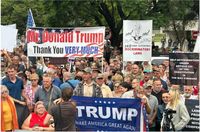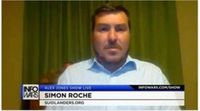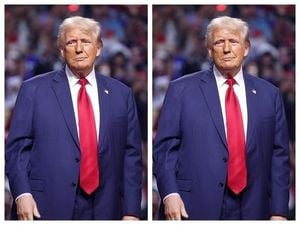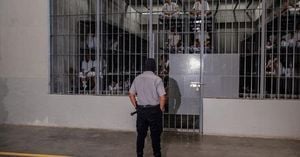A US woman in South Africa has voiced her frustration regarding the US government's plan to establish refugee centers in Pretoria for Afrikaans farmers seeking to relocate to the United States. This sentiment was shared by travel vlogger and content creator @2summers, who expressed concerns over how the US would determine who qualifies as "Afrikaans" for the refugee program.
In a viral TikTok video, @2summers, who has lived in South Africa for 15 years, highlighted her discontent after reading an article about the refugee initiative. She stated, "Taxpayer dollars will be going to set up refugee centers in Pretoria for Afrikaans farmers seeking to move to the United States." Her frustration stems from an executive order signed on February 7, 2025, titled "Addressing Egregious Actions of The Republic of South Africa." This order establishes US policy to assist Afrikaner refugees fleeing from government actions perceived as racially discriminatory, including property confiscation based on race.
The order directs the Secretary of State and Secretary of Homeland Security to focus on aiding Afrikaners in South Africa, allowing them entry into the United States Refugee Program. In her video, @2summers questioned the logistics of the program, asking, "How is the US government going to figure out or decide who is Afrikaans and who isn't, and why is this refugee program only for Afrikaners?" She expressed skepticism about the criteria that would be used to determine eligibility, suggesting that not all white South Africans identify as Afrikaans.
"What about non-white people that speak Afrikaans of which there are millions?" she added, raising concerns about the inclusivity of the refugee program. The mixed reactions from South Africans to her video included suggestions that the policy might be more about controlling trade routes than genuinely assisting Afrikaners. One user, @Rooi Gevaar, remarked, "It has less to do with white Afrikaners and more about controlling the trade route." Another commenter, @Zeta, proclaimed pride in their South African identity, stating, "I'm a white English-speaking South African and I love love my country! I'm never leaving! I'm African and proud of it!"
In the wake of Trump’s statement, Canadian immigration consultant Nicholas Avramis has cautioned Afrikaners against applying for asylum in the US, warning of potential long-term consequences. This follows reports that nearly 70,000 people have expressed interest in Trump's offer to admit Afrikaners as refugees due to "unjust racial discrimination." Avramis's warning comes amidst rising tensions and differing perspectives on the refugee policy.
The South African Chamber of Commerce in the US has noted the significant interest in the refugee program, indicating that many Afrikaners are considering this option seriously. However, Avramis's cautionary stance suggests that the implications of such a move may not be fully understood by those seeking asylum.
In a separate but related context, the Suidlanders, a group advocating for the rights of white South Africans, have been portrayed humorously in media as offering escape plans for those fearing societal collapse. This tongue-in-cheek commentary highlights the group's advice to white individuals on preparing for potential unrest, often referred to as a "race war" in some circles. The Suidlanders' website is exclusively in Afrikaans, which raises questions about accessibility and inclusivity in their messaging.
As tensions surrounding race and identity continue to escalate in South Africa, the discourse around the US refugee program for Afrikaners is becoming more complex. The Suidlanders have expressed concerns about the perceived threat to their community, framing it within a narrative of survival and preparation for an impending crisis.
In one humorous take on the subject, a writer reflects on the absurdity of the situation, noting the need for practical advice amidst fears of societal breakdown. This includes suggestions for foraging and preparing for survival in a chaotic environment. The writer's commentary underscores the surreal nature of the current climate, blending humor with serious undertones about the challenges faced by white South Africans.
As April 2025 unfolds, the intersection of US immigration policy and South African racial dynamics continues to provoke discussion and debate. With the US government planning to establish refugee centers in Pretoria, the implications for Afrikaners, and the broader South African society, are significant. The mixed reactions from both South Africans and those in the diaspora reflect a complex landscape of identity, belonging, and the quest for safety.
Amidst these developments, the African National Congress (ANC) has announced plans to engage with organizations like AfriForum and Solidarity to address the tensions arising from the US-South Africa relationship. This dialogue aims to clarify the intentions behind the US policies and their impact on local communities.
As the situation evolves, it remains to be seen how these policies will affect the lives of Afrikaners and the broader South African populace. The ongoing discourse reflects deep-seated issues of race, identity, and the quest for justice in a nation still grappling with its complex history.
In conclusion, the emerging narrative surrounding the US refugee program for Afrikaners is not just about migration; it encapsulates broader themes of race, identity, and the geopolitical landscape that shapes these discussions. As individuals weigh their options and consider their futures, the implications of these policies will undoubtedly resonate for years to come.






